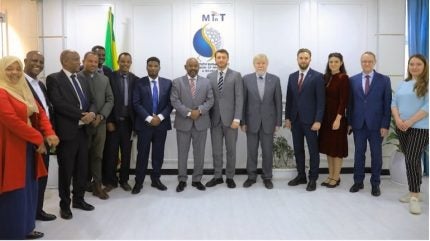
Rosatom and the Ethiopian Ministry of Innovation & Technology, have signed a contract for the development of a feasibility study (for a Centre for Nuclear Science & Technology (TsYaNT – Tsentra Yadernoi Nauki i Tekhnologii) in Ethiopia.
Rosatom will shortly begin work on the analysis of Ethiopia’s non-energy sector, will assess the technology needs of various segments of the economy that can be implemented at key facilities of the centre. A list of potential users of these technological solutions will also be compiled, which, in future, will create a market for commercial products and services based on the centre. Another important stage will be identification of possible sites for the centre and the conduct of preliminary engineering surveys for the subsequent selection of a site for its construction.
According to Ethiopia’s Minister of Innovation & Technology, Belet Mall, both countries are systematically developing cooperation in the peaceful uses of atomic energy, and he expects that Rosatom will assist Ethiopia in developing national nuclear energy and non-energy programmes, as well as individual projects.
“We are working with our foreign partners on various projects and joint solutions for the development of nuclear and radiation technologies on the African continent” said Ilya Vergizaev, divisional leader Rosatom. “The signed contract and the appointment of Rosatom as the exclusive provider of solutions in the field of developing feasibility studies for the centre in Ethiopia once again confirm the intention of our countries to strengthen long-term cooperation.”
The Rosatom State Corporation provides foreign clients with an integrated offer for centres of nuclear science and technology consisting of a research reactor, a complex of laboratories and, optionally, a multi-purpose irradiation centre and a nuclear medicine centre. In addition to the turnkey construction of the centre, the proposal includes the development of nuclear infrastructure in the partner country, personnel training, fuel supply, maintenance and modernisation, operational support, and used fuel and radioactive waste management. The research reactor and laboratories enable the production of radioisotopes for medical, industrial and agricultural purposes and may also include a radiation materials science complex for the study and development of new materials.






